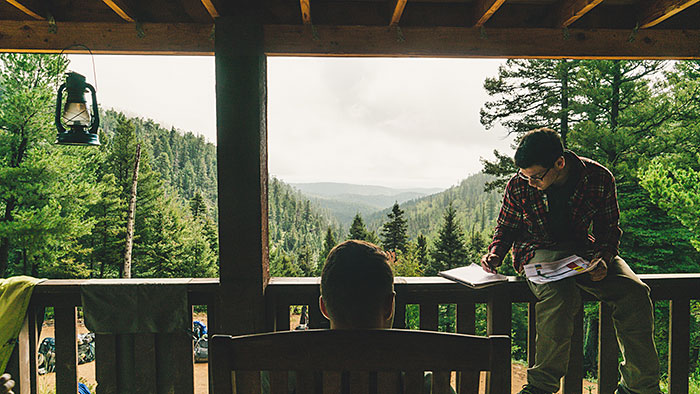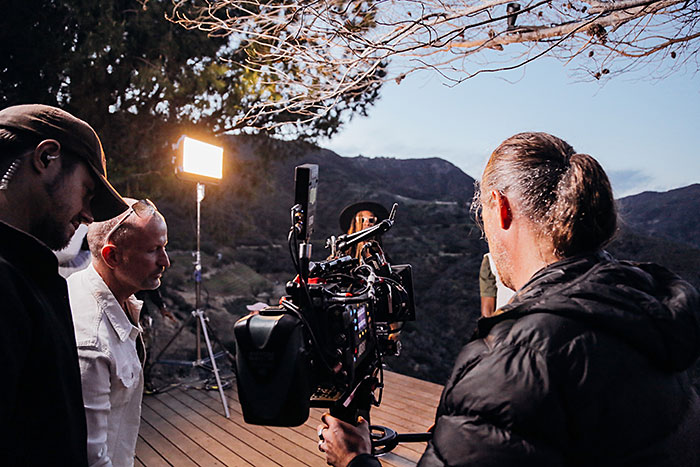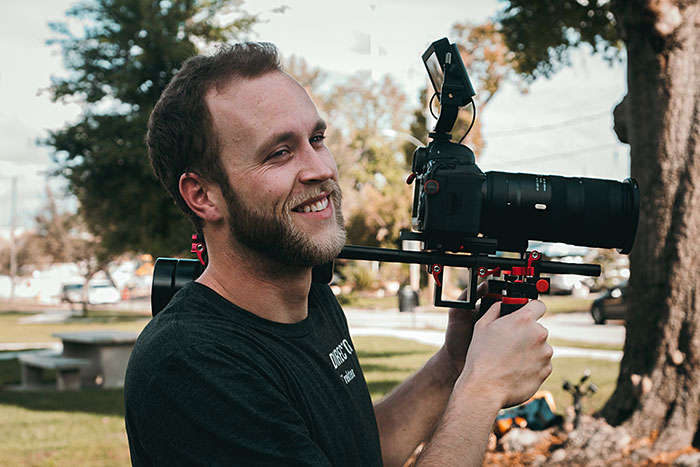“Do I need a film permit” may be high up on your list of questions. Well, if you want to make sure everything is done by the book and avoid headaches or liability down the line, the answer is a resounding yes.
Getting film permits or location releases represents a crucial part of pre-production for your film. It’s always a good idea to adhere to a pre-production checklist, and this should definitely make the list.
If you’re producing a low-budget short film, it’s always easier to shoot on private property, particularly property that you own. Location is largely an expense you can control. But sometimes you just absolutely need that football stadium or scene in the dog park.
Contact Your Film Commission
If you need to film in a well-known, public, or historic site, you will likely need a permit. Your film commission is the first place to go, and they will recommend who specifically you should reach out to in order to get the paperwork you need.
If you don’t necessarily need a public place, it can be a lot easier to shoot on private property, as all you will need is written permission from the property owner. Your film commission may also have resources for location scouting. For example The Greater Philadelphia Film Office has a Locations Finder built right into their website!
Start the Process Early
 Sometimes governments have extremely strict policies about shooting on their spaces, especially if the location is a state park or otherwise protected area. While not impossible, some governments will require you to fill out their applications months before the production is set to occur.
Sometimes governments have extremely strict policies about shooting on their spaces, especially if the location is a state park or otherwise protected area. While not impossible, some governments will require you to fill out their applications months before the production is set to occur.
We’ve seen requirements in New Jersey (sorry to single you out, NJ!) that mandate at least six months’ written notice, something that can really derail a film production if not properly planned for.
Contact Your Local Government
 Your town might not have a film commission, or if they do, they might not be an official local government body, and they might refer you to one. Local governments vary from state to state, but someone in an official government position in your town will know how to get permits to film in a public place.
Your town might not have a film commission, or if they do, they might not be an official local government body, and they might refer you to one. Local governments vary from state to state, but someone in an official government position in your town will know how to get permits to film in a public place.
The process for obtaining a NYC film permit will differ from obtaining LA film permits. And getting film permits in Los Angeles will likely differ from getting Chicago Film Office permits. And so on.
Ask Other Filmmakers
 Because the permit process varies so widely, it’s always a good idea to ask fellow filmmakers in your area about locations they’ve filmed at and what the process for getting permits is like. You’ll receive a range of answers. The indie filmmakers may just shoot guerrilla-style without permits, but if you want to make sure your production is fully buttoned-up, try to speak to experienced commercial filmmakers.
Because the permit process varies so widely, it’s always a good idea to ask fellow filmmakers in your area about locations they’ve filmed at and what the process for getting permits is like. You’ll receive a range of answers. The indie filmmakers may just shoot guerrilla-style without permits, but if you want to make sure your production is fully buttoned-up, try to speak to experienced commercial filmmakers.
These filmmakers, whether producing commercials or narrative films, will be required by their companies to secure the proper precautions and legal permission before filming (assuming they are a legitimate and well-put-together organisation!)
Get Permission in Writing, and Bring the Permit or Release Agreement to Set
 Don’t be satisfied with someone telling you verbally that you have permission to film there. Be friendly, but insist that you get written permission to film there– meaning a “location release agreement,” essentially a filming location permission form or permission to film release form. This is a document that grants you permission for film shooting by the owner or location’s responsible party.
Don’t be satisfied with someone telling you verbally that you have permission to film there. Be friendly, but insist that you get written permission to film there– meaning a “location release agreement,” essentially a filming location permission form or permission to film release form. This is a document that grants you permission for film shooting by the owner or location’s responsible party.
If it’s public property on which you’re shooting, this will be in the form of a permit. If it’s private, any type of written permission is better than nothing, but it’s best to have an official location release form for the location rep or owner to sign. We recommend contacting an attorney to draft this document, but you can also download free templates online. No Film School has put together a great template.
Contact Your Film School
 If you’re in film school, they can help guide you through this process. Your film commission might even have a special contact in charge of helping students find locations.
If you’re in film school, they can help guide you through this process. Your film commission might even have a special contact in charge of helping students find locations.
And if you’re not a student, contact some students and ask for their help, even if they’re younger than you. They’ve got resources at their disposal. Put your ego aside and do what you need to get your film made!
Getting permits or location releases for the perfect location often will cost money. If you need some more funding in your budget for locations, submit your one-sentence pitch to The Film Fund for a chance to receive up to $10,000 and other prizes to help you produce your film.
A version of this article originally appeared on The Film Fund Blog.






